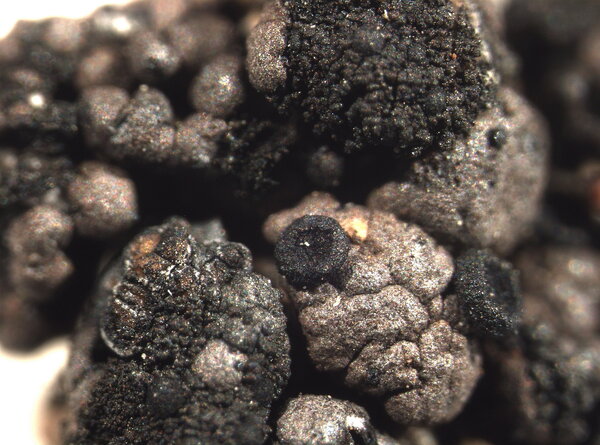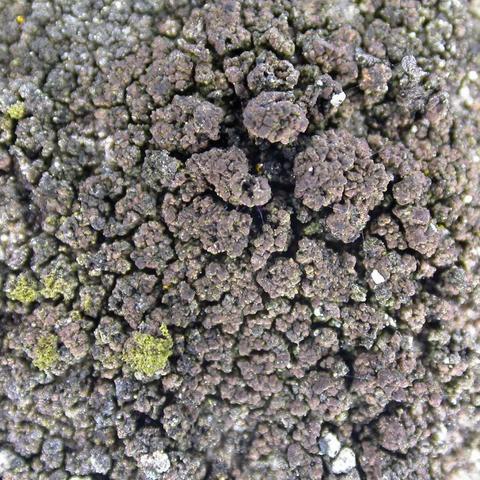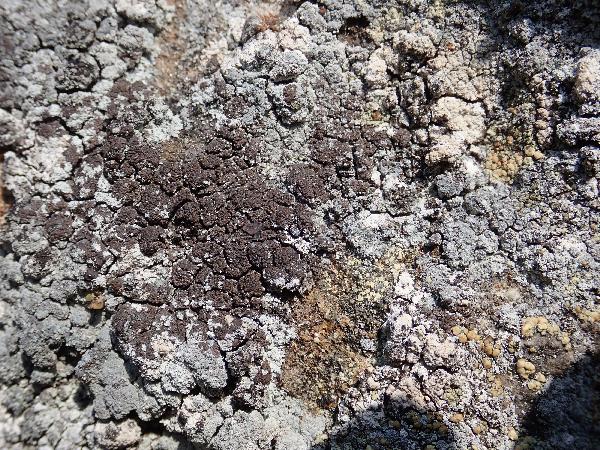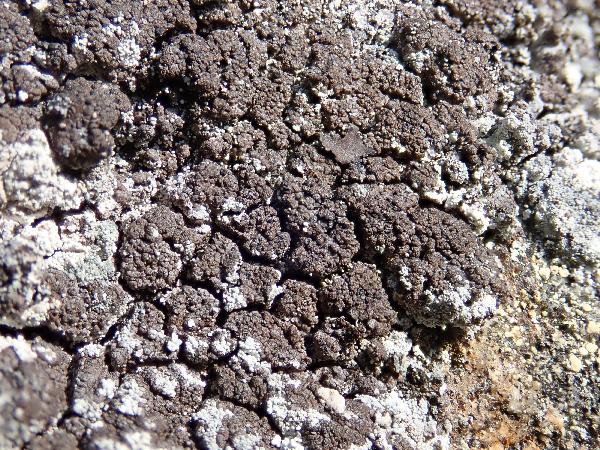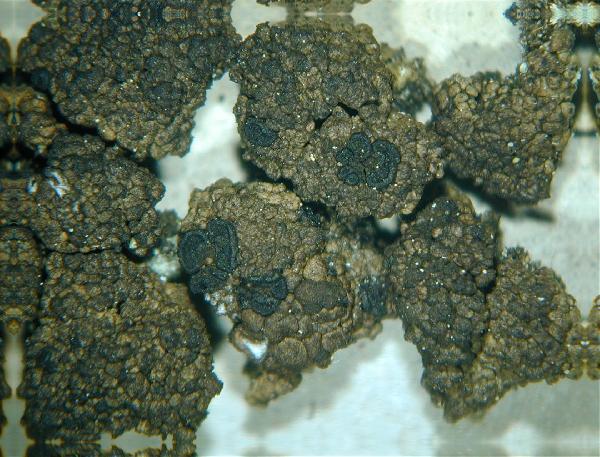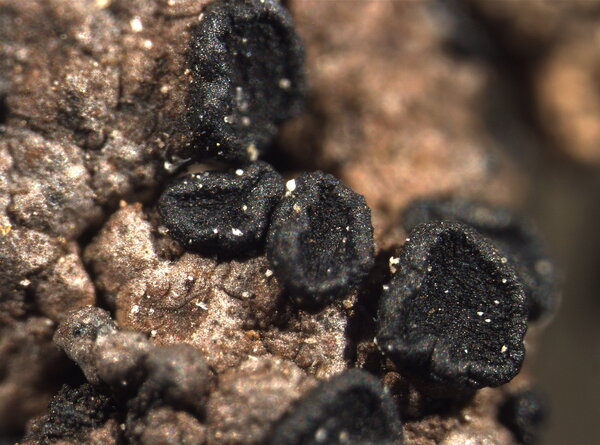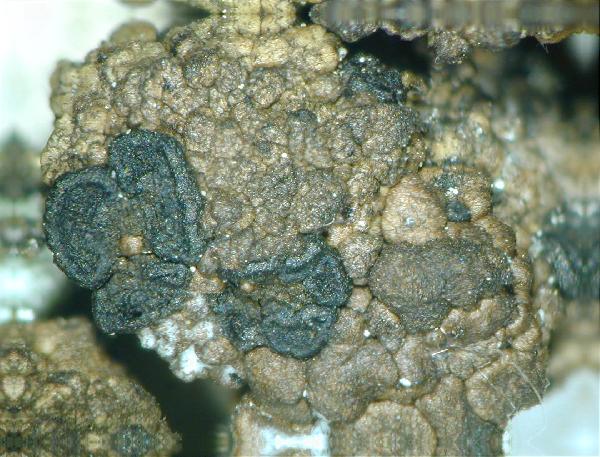Schaereria cinereorufa (Schaer.) Th. Fr.
N. Acta Reg. Soc. Sci. Upsal., ser. 3, 3: 175, 1861. Basionym: Lecidea cinereorufa Schaer. - Lich. Helv. Spicil., 3: 122, 1828.
Synonyms: Lecidea subfurva Nyl.; Psora cinereorufa (Schaer.) Hellb.; Schaereria lugubris (Fr.) Körb.
Description: Thallus crustose, episubstratic, forming up to 1.3 cm wide patches, areolate, the areoles (0.3-)1-2.5(-3) mm wide, 1-1.5 mm thick, convex, often strongly constricted at base and appearing short-stipitate and subsquamulose, contiguous, wrinkled, forming a grey-brown to dark brown, often reddish-tinged crust which is often delimited by a black prothallus. Apothecia lecideine, black, 0.5-1.2(-1.5) mm across, closely adnate or almost level with thallus, with a concave disc and a thick, persistent proper margin. Proper exciple dark brown; epithecium bluish green to emerald green, K+ intensifying green; hymenium colourless or greenish, (60-)80-100(-120) μm high; paraphyses easily make free in K, mostly simple, the apical cell clearly swollen; hypothecium dark orange-brown. Asci 8-spored, cylindrical, thin-walled, with a single wall layer, not thickened apically, only the outermost gelatinous layer K/I+ faintly blue, discharge by splitting of the apex, Schaereria-type. Ascospores 1-celled, hyaline, globose, (6-)7-9(-11) μm in diam., uniseriately arranged in the asci. Pycnidia dark brown, immersed, the wall dark brown, K-. Conidia bacilliform, 4-6 x c. 1 μm. Photobiont chlorococcoid. Spot tests; thallus K-, C-, KC-, P-; medulla sometimes C+ and KC+ pink. Chemistry: medulla with gyrophoric acid (often in very low amounts), plus an unknown compound (Cinereorufa-unknown).
Growth form: Crustose
Substrata: rocks
Photobiont: green algae other than Trentepohlia
Reproductive strategy: mainly sexual
Commonnes-rarity: (info)
Alpine belt: rare
Subalpine belt: very rare
Montane belt: absent
Dry submediterranean belt: absent
Humid submediterranean belt: absent
Padanian area: absent
pH of the substrata:
1 2 3 4 5
Solar irradiation:
1 2 3 4 5
Aridity:
1 2 3 4 5
Eutrophication:
1 2 3 4 5
Poleotolerance:
0 1 2 3
Altitudinal distribution:
1 2 3 4 5 6
Rarity
absent
extremely rare
very rare
rare
rather rare
rather common
common
very common
extremely common
Loading data...
Occurrence data
Predictive map
Growth form: Crustose
Substrata: rocks
Photobiont: green algae other than Trentepohlia
Reproductive strategy: mainly sexual
Commonnes-rarity: (info)
Alpine belt: rare
Subalpine belt: very rare
Montane belt: absent
Dry submediterranean belt: absent
Humid submediterranean belt: absent
Padanian area: absent
pH of the substrata:
| 1 | 2 | 3 | 4 | 5 |
Solar irradiation:
| 1 | 2 | 3 | 4 | 5 |
Aridity:
| 1 | 2 | 3 | 4 | 5 |
Eutrophication:
| 1 | 2 | 3 | 4 | 5 |
Poleotolerance:
| 0 | 1 | 2 | 3 |
Altitudinal distribution:
| 1 | 2 | 3 | 4 | 5 | 6 |
Rarity
absent
extremely rare
very rare
rare
rather rare
rather common
common
very common
extremely common
Loading data...
Occurrence data
Predictive map



